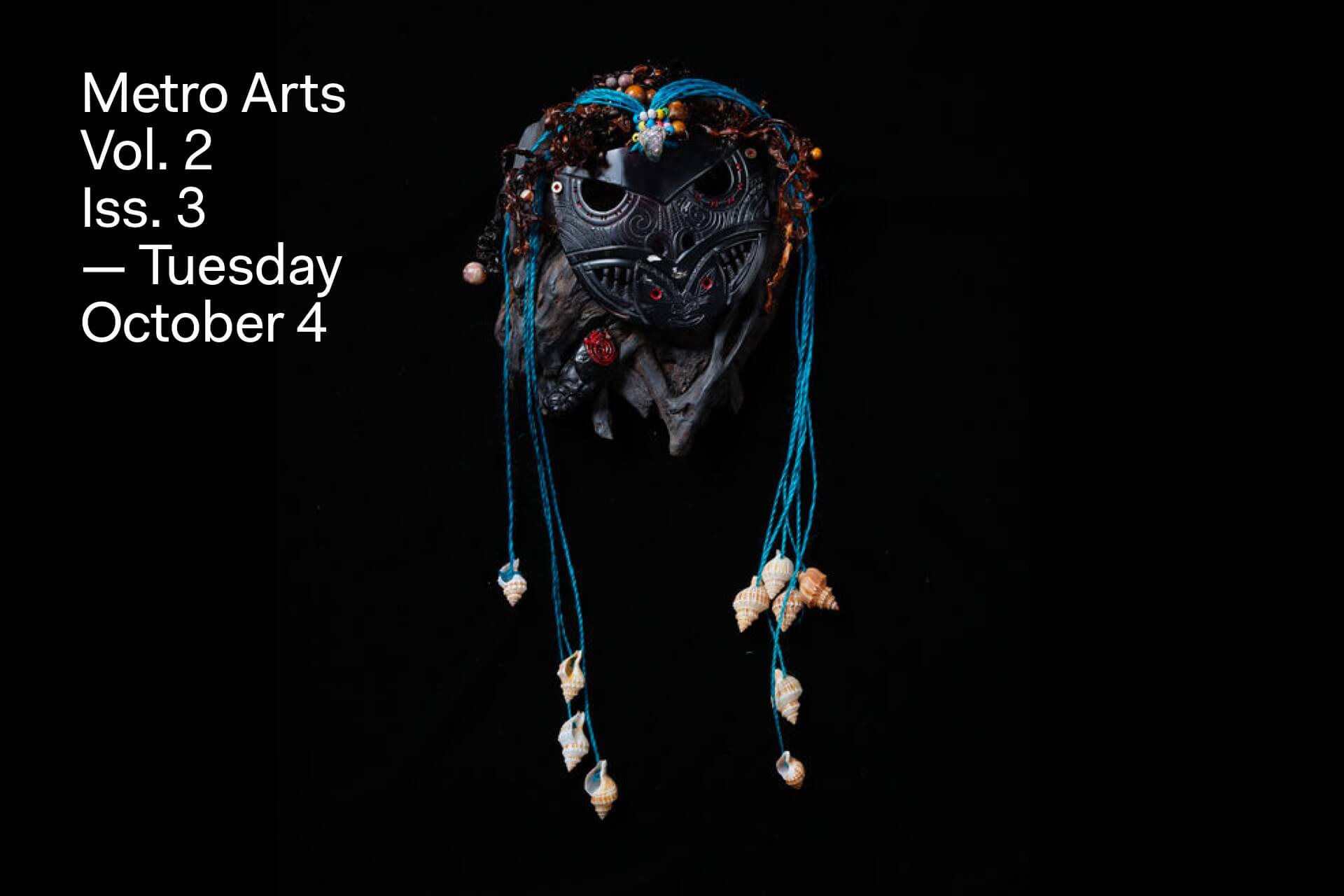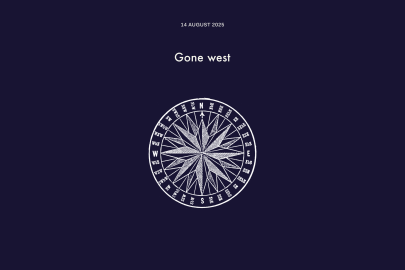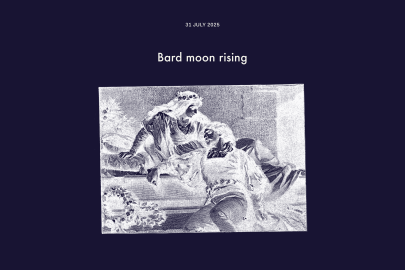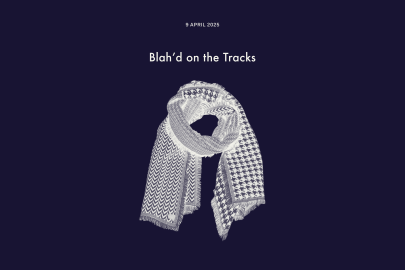Oct 4, 2022 Metro Arts
Image: Neke Moa, Papalau, 2022, Objectspace
Dear readers –
Thanks to everyone who responded to my review of Gilbert & George. It’s been reassuring to know so many people felt similarly irked by that exhibition. (I envy those who could go on with their lives, unbothered, without wasting an ounce of energy on that whole thing.) I hope that review provided a bit of catharsis and it united people under the banner of hating mediocrity.
This week and next, I’d like to reflect on identity a little bit. We are too often tasked with abbreviating, into neat little packages, how we present to the world, or how the world might perceive us (the two never neatly aligning or being commensurate with our intentions). For our art and our writing to be immediately legible we employ – often with mild exasperation, sometimes with cool indifference – the markers of identity that might lend to its prospective funders the cachet of supporting something on the right side of history. It’s a tiring and so often demoralising exercise, one whose short term wins can feel like longer term losses. But we chalk it up to the game and continue; such are the hazards of being an artist in need of money, we tell ourselves.
What we hope for, however, is that the work itself can offer something more granular and more textured than its press release or its funding application. One of the tasks of the artist is to insist on identity’s failures and the limitations of trying to use nouns to exhaust something as mercurial and fugitive as experience. If, as Susan Sontag once argued, “interpretation is the revenge of the intellect upon art” how does art respond? It continues to exceed the cubbyholes of genre and gender and race and class – alerting us to the limits of our taxonomies and the histories they are founded on.
The artist searches for new angles from which to depict a life as it is lived; they seek new ways to torque those tired old stories, approaching cliche with studied contempt, and stereotype with irony. But they can never throw out, wholesale, the stuff of identity. There can be no clean slate from which to work. We’ve witnessed the delusions of post-racial thinking and its naive attempts at evading history. The latter always catches up.
This weekend after seeing Po’ Boys and Oysters, a production by Black Creatives Aotearoa (written by Estelle Chout; directed by Dione Joseph) at Basement Theatre, I thought about the above and the many impulses that motivate artists of colour, women and nonbinary artists, queer and trans artists, disabled and working class artists. How do they work with and against identity?
There’s a clever trick at play in Po’ Boys: it shows the expansiveness of blackness by zeroing in on the details – the minutiae of intramural Afro-Caribbean arguments, for example. It’s three main characters – all of them Black women, two of them a queer couple looking to adopt – can seem, at times, worlds apart. One character’s respectability collides with what it sees as unearned liberal righteousness of her sister and her sister’s wife. The latter and their emotional vulnerability slide down a wall of the former’s stoicism, struggling to find its footing. Admittedly, Po’ Boys and Oysters – Chout’s first as a playwright – at times wobbles in its shift from one emotional extreme to the other; it occasionally lands with a didactic thud, making explicit what might’ve been better delivered through implication. But things pick back up as Chout gives her actors more supple material to mould and give form. (Sandra Zvenyika delivers a great performance of disdainful, pantsuited, National Party-voting hauteur.) Po’ Boys and Oysters called to mind the comedy of great African American sitcoms of the nineties and early 2000s (Living Single, Moesha, Girlfriends) and the chaotic familial dramas central to the Zimbabwean soaps of my younger years.
— Tendai
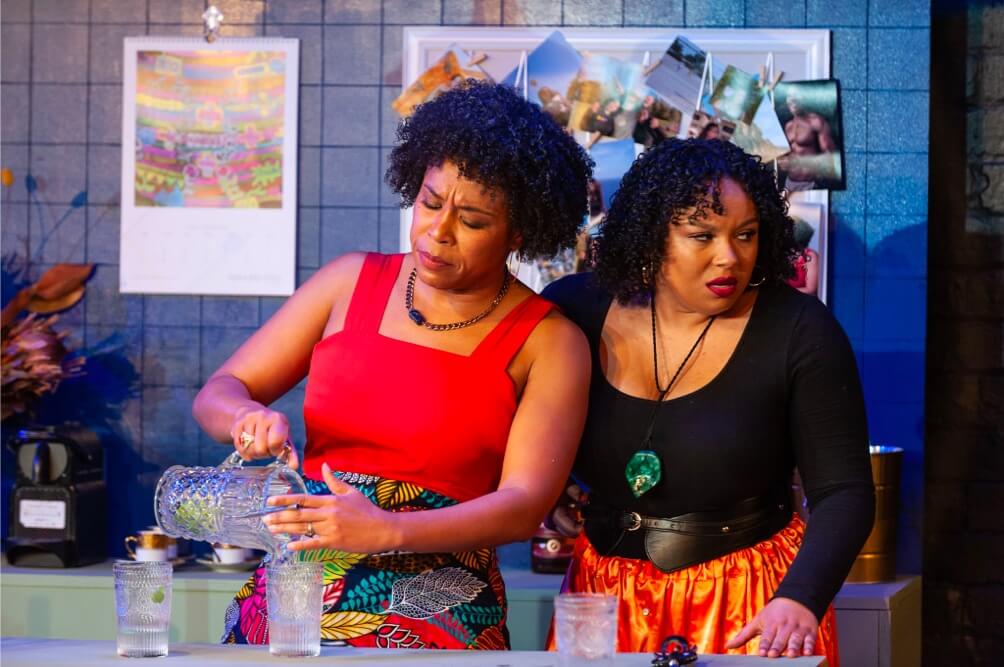
Makanaka Tuwe on
Po’ Boys and Oysters
I invited writer Makanaka Tuwe to reflect on her experience of attending Po’ Boys and Oysters. Makanaka touches on the expansive ways in which the play addresses Africa’s diasporas, and the ways in which Black intimacies and familial relations are stalked by the ghosts of colonialism and slavery.
Here’s what Makanaka had to say:
As we sat down for Po’ Boys & Oysters, I remember chuckling at how the decor of the space shared similar elements with my and my partner’s home. While queer Black narratives are not a monolith, it seems our aesthetic might be coming from the same Pinterest board, just executed differently. And that’s what the play felt like to me as a continental African watching a comedy about the life of an Afro-Caribbean lesbian couple living in Mission Bay.
Our whakapapa to Africa connects us, heavily influencing our identity and things like our aesthetic, yet our journeys through different waters from lands across the globe until our arrival in Aotearoa are different. This difference requires nuanced storytelling, as there is much for us to learn about each other as distant relatives, all while navigating life as people of African descent in Aotearoa, New Zealand.
These nuances are delivered throughout the play in the conversations we see between Flo (Estelle Chout), Jo (Layla Pitt), Marie (Sandra Zvenyika), Shane (Andrew Johnson), and Felix from Fielding (Jack Briden). It was refreshing to hear anecdotes of France’s involvement in the relations between Haiti and Martinique and the invocation of ancestors like Zora Neale Hurston and Louis Armstrong, narratives and people who are often alive in the memories of Black people but unknown to a largely non-Black mainstream.
This commentary combined with mention of Marlborough wine, Lil’ Wayne’s legacy as Louisiana’s greatest artist and Fielding being World Famous in New Zealand for winning the country’s annual Most Beautiful Town award 15 times, makes the play one that is distinctly rooted in African diasporic culture from a New Zealand lens.
While the histories of our journeys are marred with complexities and intergenerational trauma, there is tenderness, joy and love that we can always return to. Oftentimes it can be difficult to balance the presentation of these complex dynamics and throughout the play we see a push and pull of intergenerational trauma through alcoholism and genetic diseases, alongside a dedication to each other that can also be dysfunctional, reflecting familial dynamics that are universal. We get to witness tenderness in Flo and Jo’s relationship from making space for each other’s feelings, the massage, the secret handshake, the willingness to stand up for each other and the random dance and song breaks. We get to witness Flo and Marie’s unbreakable bond of sisterly love in spite of their rivalry, which like most fights between siblings ends in teasing.
Although I was left wondering whether Flo and Jo end up adopting the boy from Chile, I was also left reflecting on LGBTQIA+ rights globally as Po’ Boys & Oysters was originally set to show as part of Auckland Pride Festival. While queer visibility is on the rise and same-sex marriage is legalised in some countries, adoption and the process of becoming parents is not simple for members of the LGBTQIA+ community, amongst other things. Not only are our choices policed and can be misunderstood, there are legal consequences and barriers that exist to having children. In most African and Caribbean countries there is still the need to reverse laws that criminalise homosexuality. Laws that are mostly made up of penal codes from the colonial era that have not been changed since the independence of some of these countries.
Po’ Boys and Oysters
Produced by Black Creatives Aotearoa, is on now at Basement Theatre until October 8th.
Calendar
A Stone, an Echo, a Sign: Aotearoa Jewellery Triennial
Objectspace
10 September – 20 November
The Made by Emily Perkins
ASB Waterfront
20 September – 8 October
EQUINOX_1:03PM NZST_23-9-22
ST PAUL St Gallery
23 September – 8 October
Michelle Walton & Camille Paloma Walton
Public Record
23 September – 9 October
Raymond Sagapolutele: Aua e te fefe / Don’t be afraid
Bergman Gallery
24 September – 22 October
Roman Mitch: Red Teddy
Te Tuhi
25 September – 13 November
Legacy
NZSO
30 September – 14 October
Bright Sparks: Shayne Carter and the NZSO
NZSO
8 October – 15 October
Tino Sehgal: Yet Untitled
Auckland Art Gallery Toi o Tāmaki
1 October – 13 November
Vita Cochran: Exploded Coats and Andrea du Chatenier: Elephant’s Ear
Anna Miles Gallery
8 October – 3 November
Kōpū – Our Kōrero
Kōanga Festival 2022 | Te Pou Theatre
Basement Theatre
8 October
An Exopoetics of the Crop Circle Phenomenon
PHOTO OP.
Skar Image Lab
8 – 29 October
Julia Morrison | In hindsight
Trish Clark Gallery
8 October – 20 November
Fantastic Voyage
NZSO
9 – 16 October
I’m Happy You’re Here
Basement Theatre
11 – 15 Ooctober
I Get So Emotional Baby
Basement Theatre
11 – 22 October
Frida Kahlo and Diego Rivera: Art and Life in Modern Mexico.
Auckland Art Gallery Toi o Tāmaki
14 October – 22 January 2023
Claybenders 2022: Together – Apart
Arthaus, Ōrākei Village
October 19 – November 6

